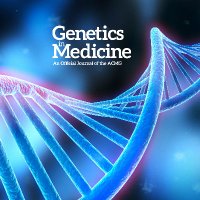
Sarah Louise Stenton
@sl_stenton
Deciphering the genetic cause of rare diseases | Variant Assessment Scientist @ Ambry Genetics
ID: 1489377675915497472
03-02-2022 23:18:24
75 Tweet
153 Takipçi
313 Takip Edilen


I very much enjoyed writing this Nature News & Views piece on the RNU4-2 story. Please read on if you want to learn more about how a non-coding variant was discovered to be one of the most frequent causes for developmental diseases. (thx M. Rissom for sketch) nature.com/articles/d4158…


I wrote a blog post to break down the science behind RNU4-2 in a way that families could understand: rarediseasegenomics.org/blog/rnu4-2-th… Key lesson: truly lay writing is incredibly important, but also super hard (this took me a while!) If you have any RNU4-2 families, please do share!


Another splicesomal RNA implicated in recurrent mutations leading to neurodevelopmental disorders, and yet again based on the whole genome sequencing of patients Genomics England who consented for responsible on going research to help understand their (or their child's) disease












